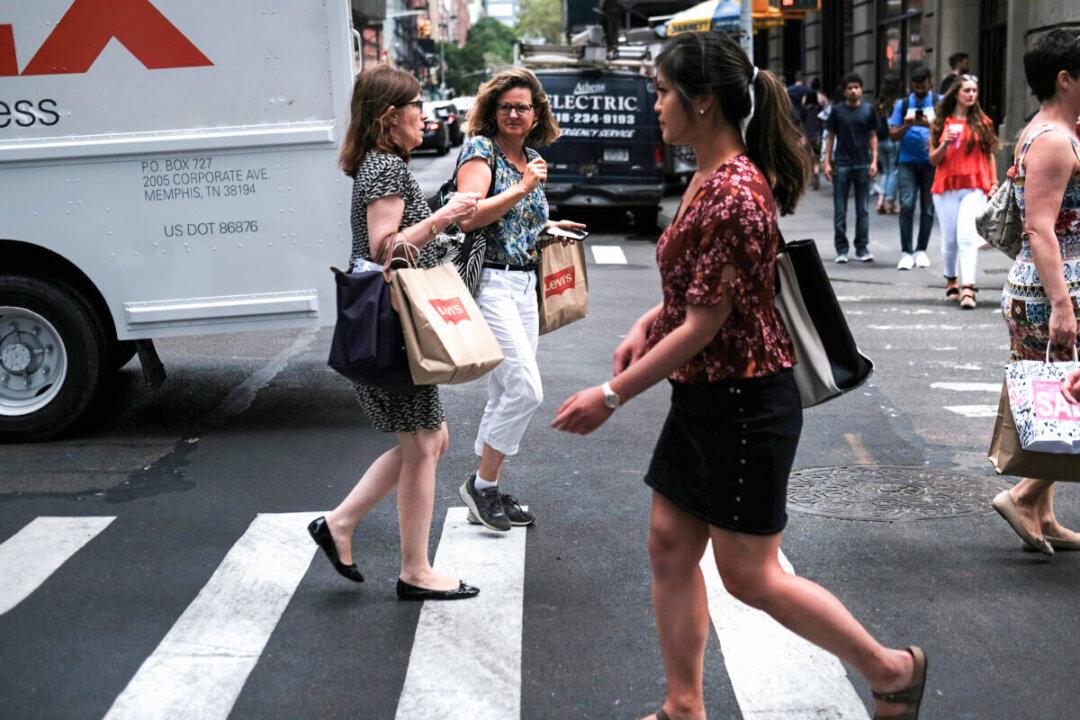U.S. consumer sentiment fell sharply in early August, with a University of Michigan confidence survey plunging to depths not seen in a decade as Americans expressed worry about personal finances, unemployment, and inflation.
The survey, released on Aug. 13, showed that the consumer sentiment index plunged to 70.2 from July’s reading of 81.2, hitting a level not seen since 2011. The 13 percent slide was one the sharpest in percentage terms in the past 50 years, exceeded only by an 18.1 percent drop in 2008 and a 19.4 percent fall in April 2020, when the CCP virus pandemic substantially damaged the U.S. economy.





